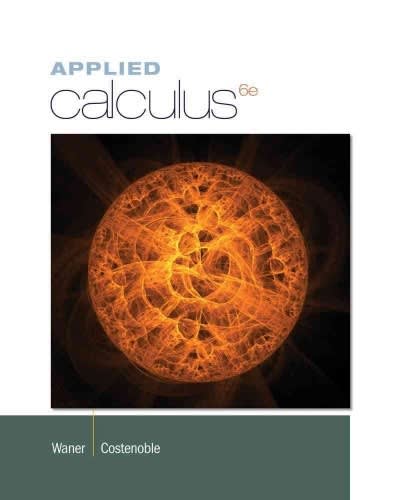Question
A gambler plays two games of chance. Every time she plays Game A, she has a chance1/5n of winning, regardless of the outcomes of all
A gambler plays two games of chance. Every time she plays Game A, she has a chance1/5n of winning, regardless of the outcomes of all other games. Every time she plays Game B, she has a chance1/n of winning, regardless of the results of all other games. She has decided on the following strategy.
- She keeps playing Game A until either she wins or she has played Game An times and lost every time.
- If she loses all n times on Game A, she starts playing Game B. She keeps playing until either she wins or she has played Game B n times and lost every time.
a)What is the chance that the gambler doesn't have to play Game B?
b)LetW be the event that the gambler ends on a win. PartitionW by filling in the blank with a verbal description of an event, and then use the partition to findP(W).
W={doesn't have to play Game B} or {}
c)The complementWc can be written asWc=AnBn whereAn is an event based only on playing Game A n times andBn is an event based only on playing Game B n times. Give verbal descriptions ofAnandBn, and hence useWc=AnBn to findP(W). Show that the answer is equal to the answer in Partb.
d)Assumen is large, and find an exponential approximation to the chance that the gambler ends on a win. After you have shown the math, in the cell below write an expression the evaluates to the approximate numerical value of the chance.
Step by Step Solution
There are 3 Steps involved in it
Step: 1

Get Instant Access to Expert-Tailored Solutions
See step-by-step solutions with expert insights and AI powered tools for academic success
Step: 2

Step: 3

Ace Your Homework with AI
Get the answers you need in no time with our AI-driven, step-by-step assistance
Get Started


